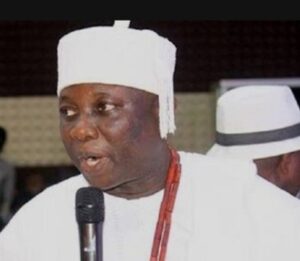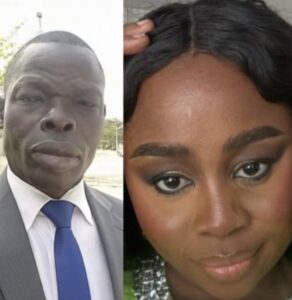Asaba Monarch Urges Tinubu to Apologize, Honor Victims of 1967 Massacre
Asaba Monarch Urges Tinubu to Apologize, Honor Victims of 1967 Massacre

The Asagba of Asaba, HRM Prof. Epiphany Azinge, has once again called on President Bola Tinubu to officially acknowledge and apologize for the mass killing of Asaba residents by Nigerian soldiers on October 7, 1967, during the Biafran War. Speaking at a memorial event marking 58 years since the tragic incident, the monarch emphasized the need for justice, reparations, and a lasting national recognition of the victims.
Addressing a large gathering at the Asaba Ogwa Ukwu (Cultural Centre), the traditional ruler described the development and relative peace now experienced in Asaba as a testament to the resilience of its people and a symbol that the sacrifice of those who died was not in vain.
Despite the passage of nearly six decades, the Federal Government has yet to issue a formal apology or provide any form of compensation. Obi Azinge expressed deep disappointment over the continued silence, vowing that the people of Asaba will persist in their quest for justice, both within Nigeria and on the international stage.
“We have risen from the ashes of our painful past,” the Asagba declared. “The people of Asaba have become a model of resilience, turning tragedy into strength. Still, the blood spilled demands acknowledgment.”
A minute of silence was observed at exactly noon during the ceremony to honor the memory of the hundreds of unarmed civilians — mostly men — executed by federal troops. According to the monarch, the massacre, though devastating, created an enduring spirit of unity and determination among Asaba indigenes, driving their collective growth and progress.
The Asagba appealed directly to President Tinubu, urging him to take bold steps toward reconciliation by issuing an official apology and establishing a federal university in Asaba to commemorate the victims.
“Our martyrs deserve more than remembrance. They deserve a memorial. They deserve an apology. And we need an institution of learning here in their honor,” he said, reiterating the demands already made known to the presidency earlier this year.
In a show of commitment to preserving the memory of the massacre, Chief Chuck Nduka-Eze, convener of the memorial and the Isama Ajie of Asaba, announced the premiere of a documentary film on the massacre, scheduled for October 26 in London. The film, he said, aims to educate the world about the tragedy and serve as a cautionary tale against ethnic violence.
Nduka-Eze, whose father was among those killed for protesting the killings, emphasized that Asaba’s commemoration of the event will now be a permanent part of its cultural calendar. Each year on October 7, the city will observe a minute of silence at noon and fire a 21-gun salute in tribute to the fallen.
“This is about reflection, not revenge,” he said. “We honor our dead not with bitterness, but with a determination to never forget. The world has much to learn from how Asaba has chosen to move forward.”
Also speaking at the event, Hon. Bridget Anyafulu, who represents Oshimili South in the Delta State House of Assembly, urged both state and federal authorities to formally recognize the massacre as a national tragedy deserving of restitution and remembrance.
The solemn ceremony featured the reading of hundreds of names of those killed, submitted by representatives from Asaba’s five traditional quarters: Ezenei, Ugbomata, Umuagu, Umuaji, and Umuonaje. The Omu of Asaba, Dr. Amaka Boise, described the victims as martyrs whose blood brought about peace and transformation, urging the people to draw strength from the tragedy.
A choir from St. John Bosco Catholic Church provided musical accompaniment with hymns sung in English and Igbo, as the Asagba and his queen joined in from their royal seats.
TRENDING SONGS
 RCCG PASTOR ANGRY OVER CALLING Him“MR” INSTEAD OF “DR,” DECLARES CURSE ONLINE
RCCG PASTOR ANGRY OVER CALLING Him“MR” INSTEAD OF “DR,” DECLARES CURSE ONLINE
 NPMA Appeals to Nigerian Government for Compensation After Lagos Market Fire
NPMA Appeals to Nigerian Government for Compensation After Lagos Market Fire
 Rest Every Four Hours, FRSC Issues Safety Guide for Fasting Motorists
Rest Every Four Hours, FRSC Issues Safety Guide for Fasting Motorists
 NNPC Boss Ojulari Bags UK Energy Institute Fellowship
NNPC Boss Ojulari Bags UK Energy Institute Fellowship
 Shock in Anambra: Bride Disappears Moments Before Wedding
Shock in Anambra: Bride Disappears Moments Before Wedding
 Nigerian Woman Returns ₦330 Million Accidentally Credited to Her Account
Nigerian Woman Returns ₦330 Million Accidentally Credited to Her Account
 APC Don Reach Morocco?’ VeryDarkMan Reacts to Seyi Tinubu Poster
APC Don Reach Morocco?’ VeryDarkMan Reacts to Seyi Tinubu Poster
 Bride Breaks Down in Tears as Wedding Meals Were Kept Secretly While Guests Go Home Hungry
Bride Breaks Down in Tears as Wedding Meals Were Kept Secretly While Guests Go Home Hungry
 Odogwu by Day, Robber by Night: How Marriage Joy Turned Into Tragedy
Odogwu by Day, Robber by Night: How Marriage Joy Turned Into Tragedy
 Nigerian Officials Allegedly Pocket N4–6B Weekly Through Smuggling Cartels at Seme–Badagry Border
Nigerian Officials Allegedly Pocket N4–6B Weekly Through Smuggling Cartels at Seme–Badagry Border
Share this post with your friends on ![]()













